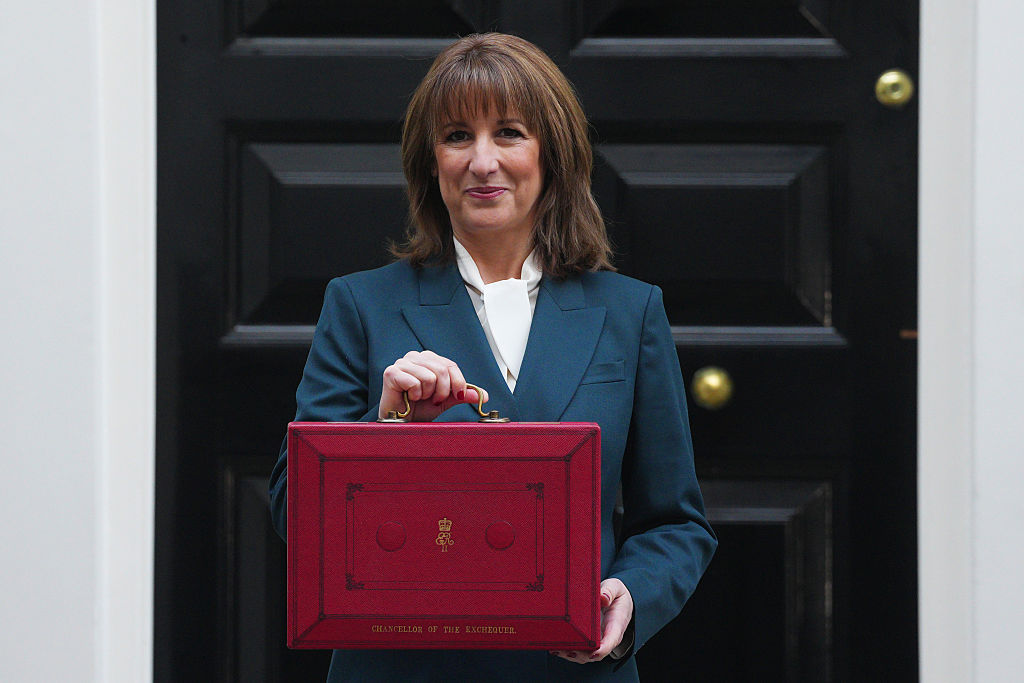The Proms – the BBC Proms, to stick a handle on its jug – remains a good deed in a naughty world. Eight weeks of orchestral music, mainly, performed nightly at the Royal Albert Hall by artists from every continent, for as little as £8 if you are prepared to stand.
One of those artists, the Georgian fiddler Lisa Batiashvili, supplied the highlight of this year’s ‘first night’ with a mighty performance of the Sibelius concerto. The concert ended with Sancta Civitas, a rarely heard choral work by Ralph Vaughan Williams, performed with love by the BBC Symphony Orchestra under its principal conductor, Sakari Oramo. Musically, it was a good start, despite the tiresome clapping between movements of the Sibelius.
So why did the occasion, carried live on BBC2, fall flat? For the same reason that so many televised events do. It was presented as a compound of sporting event and talent show, designed to titillate adolescents who might feel ‘excluded’ by anything formal.
You had to feel a tinge of sympathy for the presenters. Petroc Trelawny has one of radio’s most pleasing voices, and Georgia Mann is a bright lady. Both love music. Here, though, they were following instructions laid down from above: make it groovy!
There was much joshing and gurning, and as the evening wore on, Mann ignored her Ts and lurched into ‘Mockney George’ territory. There was also a comedian on hand, one Nick Mohammed, who said nothing funny, nor offered an observation that might not have been said with more brevity by a Prommer plucked from the queue. But he said ‘staggering’ four times, to go with ‘phenomenal’ and ‘surreal’, so he served his purpose.
Trelawny gave the game away in his introduction, referring to the ‘crowd’ that had gathered inside the hall. Sporting events have crowds. Concerts have audiences. It’s an important distinction, because language establishes tone. Nor was it wise for Trelawny to invoke ‘a sense of democracy’. The Proms is a musical festival, open to all, not a rally for zealots.
Trelawny gave the game away in his introduction, referring to the ‘crowd’ that had gathered inside the hall. Sporting events have crowds. Concerts have audiences
This year, for unfathomable reasons, they have decided to go backstage before and during Proms, in search of ‘colour’. The man selected for this absurd exercise was Linton Stephens, whose banal questions, read from a crib sheet, would have shamed a six-year-old. ‘What’s it like to perform this epic work?’ he asked Batiashvili, who responded with admirable tolerance. Other questions followed, to baffled choristers preparing for the Vaughan Williams: ‘What’s it like performing at the Proms?’ ‘What does it mean to you?’ ‘What’s going through your head?’ ‘What does your family think of you performing at the Proms?’
Drivel like this wouldn’t be acceptable at a lower league football match. At the Proms it was excruciating. Suzy Klein, the corporation’s head of arts and classical music, must know this sort of rubbish is strictly for amateur hour. Get rid.
A living composer was brought on to freshen the bloom in the second half. Errollyn Wallen is Master of the King’s Music and, in Mann’s estimation, ‘a Proms trailblazer’. The trail she blazed here was a ten-minute piece called The Elements, written for the occasion, and it sounded pretty thin. The lady wore dazzling yellow specs, though.
What’s to come later this season? The Traitors Prom, of course, and another CBeebies entertainment. They’ve cleared the decks for Star Wars, ‘Soul Revolution’, a Classic Thriller Soundtracks evening (which sounds promising), and Anoushka Shankar and her wretched sitar.
This is not traditional Proms territory, and there’s a reason for it. The BBC, obsessed with cultural identity, is embarrassed by the undeniable fact that orchestral music has been composed over the past four centuries by white men. In our world, where ‘diversity’ is the thing, that great tradition makes people uneasy. Hence the desire to introduce new features that have less to do with quality than the fulfilment of quotas. That way the clever producer clambers up the greasy pole.
So here are a few ideas for Klein and her band of groovers to consider: a brass band Prom; a Fred Astaire tribute; a flamenco evening; a return for Roby Lakatos, the great Magyar gypsy fiddler; a George Formby night; a bubblegum pop spectacular; and a gathering of Nordic jazzers. There have been enough Soul Revolutions of various sorts in recent years, though it should be said the Northern Soul two years back night worked. A rare triumph.
Carry on, Petroc and Georgia. But remember, to thine own selves be true. And please, no comedians.







Comments